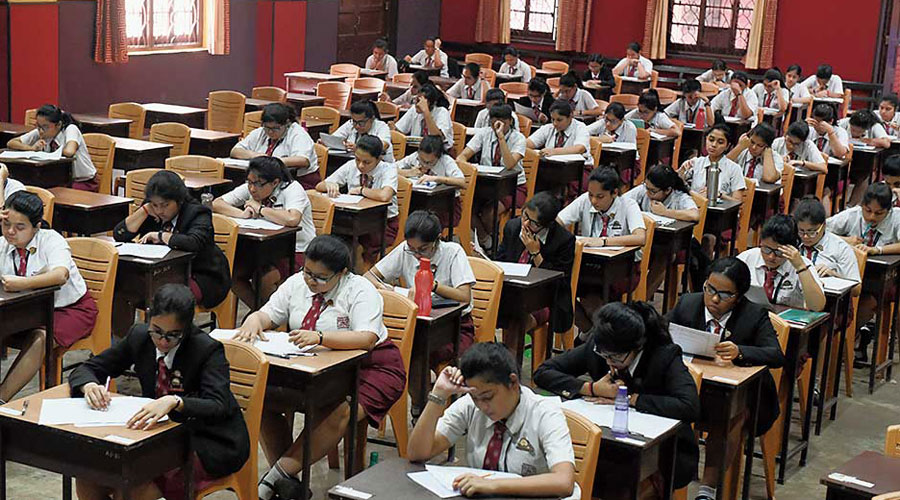The weightage given to a school’s best performance in six years while awarding marks to outgoing ISC students is a cushion against schools being overgenerous to their students in the absence of a board exam, a statistics professor said on Friday.
The Telegraph had requested the professor to go through the formula submitted by the Council for the Indian School Certificate Examinations (CISCE), which conducts the ICSE (Class X) and ISC (Class XII) exams, in an affidavit to the Supreme Court on Thursday.
He said the marks calculation under the formula takes into account both the student’s individual performance and the school’s past performance.
“The scaled score will take into account the score of a student in a school and consider it in the context of the school’s (past) performance,” the professor said.
“If a school tries to inflate marks, the formula will filter out that kind of error, arresting any attempt at malpractice.”
Apart from the students’ “best marks” obtained in any subject in Classes XI and XII, their performance in projects and practical work would get substantial weightage, while their Class X board marks will get a small weightage too.
The professor called it “a well-worked-out” formula where the reliance on the school’s best performing year since 2015 would “neutralise” any inflated or tight-fisted internal marking.
“The formula addresses two factors, one of them a (possible) tendency of schools to over-mark their students. The other is a tendency to be stingy with the marking in internal exams. But if a child scores too few marks in the internal exams, that too will get neutralised to some extent,” the professor said.
The professor, however, said the reliance on the school’s best performance in the last six years could, to an extent, disadvantage an academically bright student in a not-so-successful school that tends to show average results.
Even though the formula is good, it requires meticulous implementation because of the “enormous data” involved, the professor said.
“While the formula and process are well thought out, the implementation and marks calculation will depend on the software and the (proficient) handling of data in a short time. Any error could prove disastrous for individual students,” he said.
The council had asked the schools to furnish the average marks scored by their outgoing Class XII students in their school exams in Class XI and XII.
Because of the pandemic, schools have been closed since March 2020 and most of them were forced to conduct online exams.
“If the council is considering the schools’ best performance in the last six years, it’s trying to see whether there’s a consistency,” Seema Sapru, principal of The Heritage School, said.
In other words, Sapru said, the council wants to see whether the students have earned very high marks in the online exams conducted in a pandemic year or whether the school’s students always scored high marks.
Several teachers said the schools should not object to the formula since it was the same for every school.
“It is favouring all the schools because it’s the best performance in the last six years (that is being considered) — no one should have any objection to it,” said Devi Kar, director of the Modern High School for Girls.
The CISCE affidavit says the council constituted an “expert panel comprising 3 external members, who are renowned scholars in the field of statistics” and six in-house members who are experts in the field of education and in “conducting year-end examinations” to develop the “scheme for objective assessment”.











